Home>Gardening & Outdoor>Pool & Spa Care>Why Does Hot Tub Water Smell
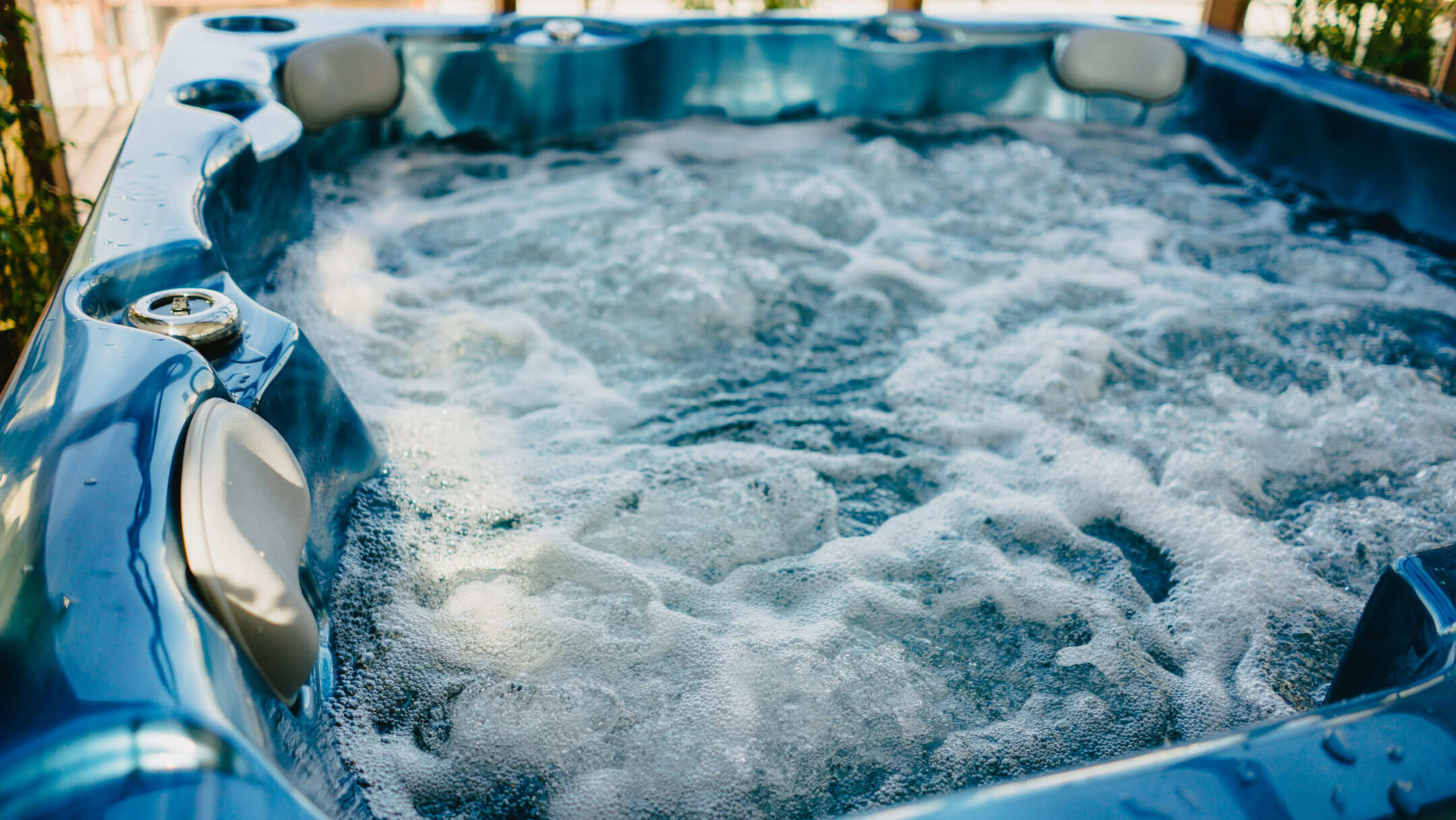

Pool & Spa Care
Why Does Hot Tub Water Smell
Modified: August 23, 2024
Learn why hot tub water smells and how to fix it with our expert pool and spa care tips. Keep your hot tub clean and odor-free with our helpful advice.
(Many of the links in this article redirect to a specific reviewed product. Your purchase of these products through affiliate links helps to generate commission for Storables.com, at no extra cost. Learn more)
Introduction
Welcome to the wonderful world of hot tubs, where relaxation meets rejuvenation. There’s nothing quite like soaking in warm, bubbling water after a long day, melting away stress and tension. However, as with any aquatic environment, maintaining the cleanliness and purity of the water is essential for a delightful and hygienic experience.
One common issue that hot tub owners may encounter is the presence of unpleasant odors emanating from the water. This can be off-putting and detract from the otherwise enjoyable atmosphere of your hot tub oasis. But fear not, understanding the causes of hot tub water odor and implementing effective solutions can restore your tub to its aromatic glory.
In this article, we’ll delve into the various factors that contribute to hot tub water odor, from bacterial growth to chemical imbalance and the presence of organic matter. Additionally, we’ll explore practical and proactive measures to eliminate these odors, such as regular cleaning and maintenance, as well as proper water treatment. By the end, you’ll be equipped with the knowledge to keep your hot tub water smelling fresh and inviting, ensuring an optimal soaking experience every time.
Key Takeaways:
- Combat hot tub water odor by maintaining proper chemical balance, regular cleaning, and proactive water treatment to ensure a fresh and inviting soaking experience.
- Prevent hot tub water odor by addressing bacterial growth, managing organic matter, and implementing thorough cleaning and maintenance practices for a delightful hot tub oasis.
Read more: Why Does My Hot Tub Lose Water
Causes of Hot Tub Water Odor
Hot tub water odor can stem from various sources, ranging from microbial activity to chemical imbalances and the accumulation of organic debris. Understanding these underlying causes is crucial for effectively addressing and preventing unpleasant odors in your hot tub.
Bacterial Growth
Bacteria thrive in warm, moist environments, making hot tubs an ideal breeding ground if not properly maintained. The presence of bacteria can result in foul-smelling water, often reminiscent of rotten eggs or musty odors. These odors are typically caused by the release of hydrogen sulfide gas, a byproduct of bacterial metabolism. Additionally, biofilm, a slimy layer of bacteria that adheres to surfaces, can contribute to persistent odors and water contamination.
Chemical Imbalance
The chemical balance of your hot tub water plays a pivotal role in its overall quality, including its scent. When essential parameters such as pH, total alkalinity, and sanitizer levels are not within the recommended range, it can lead to water that emits an unpleasant odor. For instance, an imbalance in chlorine or bromine levels can result in a strong chemical smell, indicating inadequate sanitation or the presence of chloramines, which are formed when chlorine combines with organic compounds.
Organic Matter
Organic materials, such as sweat, body oils, lotions, and cosmetics, introduced into the hot tub by bathers can contribute to water odor. These substances serve as nutrients for bacteria and other microorganisms, fostering their growth and leading to the development of unpleasant odors. Furthermore, if leaves, insects, or other outdoor debris find their way into the water, they can decompose and release odorous compounds, further compromising water quality.
By recognizing these primary causes of hot tub water odor, you can take targeted measures to address each issue, ensuring that your hot tub remains a source of relaxation and enjoyment without any olfactory distractions.
Read more: Why Is The Hot Tub Water Green
Bacterial Growth
When it comes to hot tub water maintenance, combating bacterial growth is a top priority. Bacteria, particularly those that thrive in warm, aquatic environments, can significantly impact the cleanliness and odor of hot tub water. Understanding the dynamics of bacterial growth is essential for effectively addressing and preventing unpleasant odors in your hot tub.
One of the most common culprits behind hot tub water odor is the proliferation of bacteria. These microorganisms, often invisible to the naked eye, can multiply rapidly in the warm, nutrient-rich environment of a hot tub if proper sanitation and maintenance practices are not upheld. The presence of bacteria can lead to the development of foul-smelling odors, which may manifest as a musty or rotten egg-like scent.
Hydrogen Sulfide Gas
One particularly notorious byproduct of bacterial metabolism in hot tubs is hydrogen sulfide gas. This compound, characterized by its distinctive rotten egg odor, can arise when certain types of bacteria break down organic matter in the water. The release of hydrogen sulfide gas not only contributes to unpleasant odors but also serves as a telltale sign of bacterial activity within the hot tub.
Biofilm Formation
In addition to free-floating bacteria, hot tubs are susceptible to the formation of biofilm, a slimy layer of microorganisms that adheres to surfaces. Biofilm can develop on the interior walls, plumbing, and filtration systems of the hot tub, providing a hospitable environment for bacteria to thrive and multiply. This persistent microbial community can contribute to ongoing water contamination and odor issues, necessitating thorough cleaning and preventative measures to address.
Combatting bacterial growth in your hot tub involves a multifaceted approach, including regular sanitation, proper water circulation, and routine cleaning of all surfaces and components. By staying vigilant and proactive in managing bacterial proliferation, you can effectively mitigate odor concerns and ensure that your hot tub remains a pristine and inviting sanctuary for relaxation.
Chemical Imbalance
The chemical balance of hot tub water is a critical factor in maintaining its clarity, cleanliness, and overall quality. When essential parameters such as pH, total alkalinity, and sanitizer levels deviate from their optimal ranges, it can lead to water that emits an unpleasant odor. Understanding the impact of chemical imbalances on hot tub water quality is pivotal for addressing odor concerns and preserving a delightful soaking experience.
Read more: Why Does My Toilet Water Smell
Chlorine and Bromine Levels
Chlorine and bromine are common sanitizers used to disinfect hot tub water and control microbial growth. However, when these sanitizers are not maintained within their recommended concentration ranges, it can result in water that emits a strong chemical odor. This odor is often indicative of insufficient sanitation, allowing bacteria and organic compounds to persist in the water, leading to the formation of chloramines or bromamines. These combined compounds, formed when chlorine or bromine react with organic matter, can produce an unpleasant, chlorine-like scent that detracts from the overall enjoyment of the hot tub.
pH and Total Alkalinity
The pH and total alkalinity of hot tub water play crucial roles in maintaining water balance and preventing corrosion or scale formation. When the pH level is too high or too low, it can impact the effectiveness of sanitizers and lead to water that emits an off-putting odor. In addition, imbalanced total alkalinity can contribute to pH fluctuations, further complicating water chemistry and potentially resulting in malodorous hot tub water.
Organic Compound Reaction
Chemical imbalances can also exacerbate the interaction between sanitizers and organic compounds introduced into the hot tub by bathers. Sweat, body oils, lotions, and other personal care products can react with inadequately balanced sanitizers, leading to the formation of chlorinated or brominated compounds that contribute to unpleasant odors. Properly managing chemical balance is essential for minimizing these reactions and maintaining water that is both hygienic and free from off-putting scents.
By prioritizing regular water testing, diligent chemical adjustments, and adherence to recommended water balance parameters, hot tub owners can effectively mitigate the impact of chemical imbalances on water odor. Maintaining a harmonious chemical environment within the hot tub is key to ensuring that its inviting ambiance remains uncompromised by unpleasant odors.
Organic Matter
Hot tub water can serve as a nurturing environment for not only bacteria but also organic matter introduced by bathers and outdoor debris. The presence of organic materials, such as sweat, body oils, lotions, and environmental contaminants, can significantly impact water quality and contribute to the development of unpleasant odors. Understanding the role of organic matter in hot tub water odor is essential for implementing effective preventative measures and maintaining a pristine soaking environment.
Read more: Why Does My Sink Water Smell
Nutrient Source for Bacteria
Organic substances introduced into the hot tub water can serve as a nutrient source for bacteria and other microorganisms. Sweat, body oils, and personal care products contain organic compounds that bacteria can metabolize, leading to their proliferation and the formation of biofilm. This microbial activity can result in the release of odorous byproducts, contributing to unpleasant scents that detract from the overall enjoyment of the hot tub.
Outdoor Debris and Contaminants
If the hot tub is located in an outdoor setting, it may be susceptible to the accumulation of leaves, insects, pollen, and other environmental debris. When these organic materials find their way into the water, they can decompose and release compounds that contribute to water odor. Additionally, outdoor contaminants, such as dust and pollen, can introduce organic matter and further challenge water quality, necessitating proactive filtration and cleaning measures.
Preventative Measures
To address the impact of organic matter on hot tub water odor, proactive measures are essential. Encouraging bathers to shower before entering the hot tub can help minimize the introduction of sweat, body oils, and personal care products into the water. Additionally, using a quality hot tub cover when the tub is not in use can help prevent the accumulation of outdoor debris and contaminants, preserving water quality and mitigating odor concerns.
Regular maintenance, including thorough filtration, skimming, and surface cleaning, is crucial for removing organic matter and preventing its accumulation in the hot tub water. By implementing these preventative measures, hot tub owners can effectively minimize the impact of organic materials on water quality and enjoy a consistently fresh and inviting soaking experience.
Solutions for Eliminating Hot Tub Odor
Addressing hot tub water odor requires a proactive and multi-faceted approach, encompassing regular cleaning and maintenance practices, as well as diligent water treatment and chemical management. By implementing targeted solutions, hot tub owners can effectively eliminate odors and maintain water that is both hygienic and inviting for relaxation.
Read more: Why Is My Hot Tub Water Cloudy And Foamy
Regular Cleaning and Maintenance
Consistent and thorough cleaning is paramount for preventing the accumulation of organic matter, bacteria, and biofilm in the hot tub. Implementing a regular maintenance schedule that includes skimming the water’s surface, cleaning the filter, and scrubbing the interior surfaces can significantly reduce the presence of odor-causing agents. Additionally, draining and refilling the hot tub at recommended intervals can help refresh the water and minimize odor concerns.
Proper Water Treatment
Maintaining a harmonious chemical balance within the hot tub is essential for effective water treatment and odor control. Regularly testing and adjusting the pH, total alkalinity, and sanitizer levels according to manufacturer recommendations can help prevent the formation of chloramines, bromamines, and other odor-causing compounds. Furthermore, utilizing non-chlorine shock treatments and oxidizing agents can assist in breaking down organic contaminants and maintaining water clarity and freshness.
Enhanced Filtration and Circulation
Optimizing the hot tub’s filtration system and ensuring adequate water circulation is instrumental in removing impurities and maintaining water quality. Regularly cleaning or replacing the filter, as well as running the circulation pump for sufficient durations, can help remove organic matter, bacteria, and debris from the water, reducing the likelihood of persistent odors.
Aromatherapy and Fragrance-Free Options
For hot tub owners seeking to enhance their soaking experience with pleasant scents, utilizing aromatherapy products specifically designed for hot tub use can provide an enjoyable alternative to combatting odors. These products offer fragrance options that complement the hot tub environment without compromising water quality. Additionally, opting for fragrance-free sanitation and maintenance products can help minimize the introduction of additional odorous compounds into the water.
By integrating these solutions into their hot tub maintenance routine, owners can effectively combat water odor and ensure that their hot tub remains a welcoming and refreshing retreat for relaxation and rejuvenation.
Read more: Why Is My Hot Tub Water Level Dropping
Regular Cleaning and Maintenance
Consistent and thorough cleaning and maintenance practices are essential for preserving the cleanliness and inviting ambiance of a hot tub. By implementing a regular maintenance regimen, hot tub owners can effectively minimize the accumulation of organic matter, bacteria, and biofilm, thus mitigating the development of unpleasant odors in the water. Here are key strategies for maintaining a fresh and pristine hot tub environment through regular cleaning and maintenance:
Skimming and Surface Cleaning
Skimming the water’s surface to remove leaves, insects, and other debris is an important first step in preventing the introduction of organic matter and contaminants into the hot tub. Additionally, promptly removing any floating debris helps maintain water clarity and reduces the potential for odorous compounds to develop.
Filter Maintenance
The hot tub’s filter plays a crucial role in removing impurities and particles from the water. Regularly inspecting and cleaning the filter, as well as adhering to recommended replacement schedules, is vital for ensuring optimal filtration performance. A clean and efficient filter can effectively trap organic matter and bacteria, preventing their accumulation and the associated odors.
Surface Cleaning
Periodically scrubbing the interior surfaces of the hot tub helps remove biofilm, mineral deposits, and any organic residues that may contribute to water odor. Using a non-abrasive cleaner suitable for hot tub surfaces, along with a soft brush or cloth, can help maintain a hygienic environment and minimize the potential for persistent odors.
Read more: How Fast Does Hot Tub Water Evaporate
Draining and Refilling
Regularly draining and refilling the hot tub at recommended intervals is essential for refreshing the water and preventing the buildup of dissolved solids and organic contaminants. This practice not only helps maintain water quality but also reduces the potential for persistent odors associated with aging water and accumulated impurities.
Preventative Care
Implementing preventative care measures, such as using a high-quality hot tub cover when the tub is not in use, can help minimize the introduction of outdoor debris and contaminants. Encouraging bathers to shower before entering the hot tub can also reduce the introduction of sweat, body oils, and personal care products, thus minimizing the nutrient source for odorous bacteria.
By incorporating these regular cleaning and maintenance practices into their hot tub care routine, owners can effectively minimize the presence of odor-causing agents and ensure that their hot tub remains a source of relaxation and rejuvenation, free from unpleasant odors.
Proper Water Treatment
Maintaining a harmonious chemical balance and implementing effective water treatment strategies are pivotal for preserving the clarity, cleanliness, and odor-free nature of hot tub water. By prioritizing proper water treatment, hot tub owners can effectively mitigate the formation of odor-causing compounds and ensure a hygienic and inviting soaking experience. Here are key considerations for implementing proper water treatment in a hot tub:
Regular Water Testing
Consistent and accurate water testing is fundamental for assessing the chemical balance and sanitizer levels in the hot tub. Testing kits designed for hot tub water allow owners to monitor parameters such as pH, total alkalinity, and sanitizer concentrations, providing insight into the water’s quality and the need for potential adjustments.
Read more: Why Does My Hot Tub Keep Running
pH and Total Alkalinity Adjustment
Maintaining the appropriate pH and total alkalinity levels is essential for water balance and the effectiveness of sanitizers. Adjusting these parameters as needed, using pH increasers or decreasers and alkalinity enhancers, can help prevent fluctuations that may contribute to the formation of odor-causing compounds and ensure optimal water quality.
Sanitizer Management
Utilizing appropriate sanitizers, such as chlorine or bromine, at recommended concentrations is crucial for controlling microbial growth and preventing the development of odorous compounds. Regularly testing and adjusting sanitizer levels, as well as utilizing non-chlorine shock treatments and oxidizing agents, can help break down organic contaminants and maintain water clarity and freshness.
Chloramine and Bromamine Control
Preventing the formation of chloramines and bromamines, compounds that result from the interaction of chlorine or bromine with organic matter, is essential for minimizing odors in the hot tub. Ensuring adequate sanitizer levels and addressing imbalances that may lead to chloramine formation are key strategies for controlling these compounds and preserving water purity.
Non-Chlorine Options
For hot tub owners seeking alternatives to traditional chlorine-based treatments, non-chlorine sanitizers and shock treatments can offer effective odor control and water maintenance. These options provide viable alternatives for individuals sensitive to chlorine and can contribute to a pleasant and odor-free hot tub environment.
By prioritizing proper water treatment and chemical management, hot tub owners can effectively mitigate the formation of odorous compounds and maintain water that is both hygienic and inviting for relaxation. Consistent monitoring, adjustment, and adherence to recommended water treatment practices are essential for preserving the pristine nature of hot tub water.
Read more: Why Does My Hot Tub Feels Gritty
Conclusion
As we’ve explored the multifaceted factors contributing to hot tub water odor, it’s evident that maintaining a clean, fresh, and inviting soaking environment requires a proactive and comprehensive approach. From addressing bacterial growth and chemical imbalances to managing organic matter and implementing effective water treatment, hot tub owners have a range of strategies at their disposal to combat odors and ensure an optimal soaking experience.
By understanding the role of bacterial activity in producing unpleasant odors, hot tub enthusiasts can prioritize thorough cleaning, maintenance, and sanitation practices to minimize microbial proliferation and the release of odorous byproducts. Additionally, recognizing the impact of chemical imbalances on water quality underscores the importance of regular testing, adjustment, and diligent chemical management to prevent the formation of chloramines, bromamines, and other odor-causing compounds.
The presence of organic matter in hot tub water serves as a nutrient source for bacteria and can contribute to persistent odors. Through proactive measures such as skimming, filter maintenance, and surface cleaning, hot tub owners can effectively mitigate the accumulation of organic debris and contaminants, preserving water quality and minimizing odor concerns.
Proper water treatment and chemical management play a pivotal role in preserving water clarity, freshness, and odor-free nature. By prioritizing regular testing, pH and sanitizer adjustment, and the control of chloramines and bromamines, hot tub owners can effectively maintain a harmonious chemical balance and prevent the formation of odorous compounds.
Ultimately, integrating these insights and strategies into a comprehensive hot tub maintenance routine empowers owners to create a consistently clean, inviting, and refreshing soaking environment. By embracing proactive cleaning, maintenance, and water treatment practices, hot tub enthusiasts can ensure that their oasis remains a source of relaxation and rejuvenation, free from the distractions of unpleasant odors.
With a commitment to proactive care and a keen understanding of the factors influencing hot tub water odor, owners can enjoy a pristine and inviting soaking experience, immersing themselves in the soothing embrace of their well-maintained hot tub oasis.
Frequently Asked Questions about Why Does Hot Tub Water Smell
Was this page helpful?
At Storables.com, we guarantee accurate and reliable information. Our content, validated by Expert Board Contributors, is crafted following stringent Editorial Policies. We're committed to providing you with well-researched, expert-backed insights for all your informational needs.

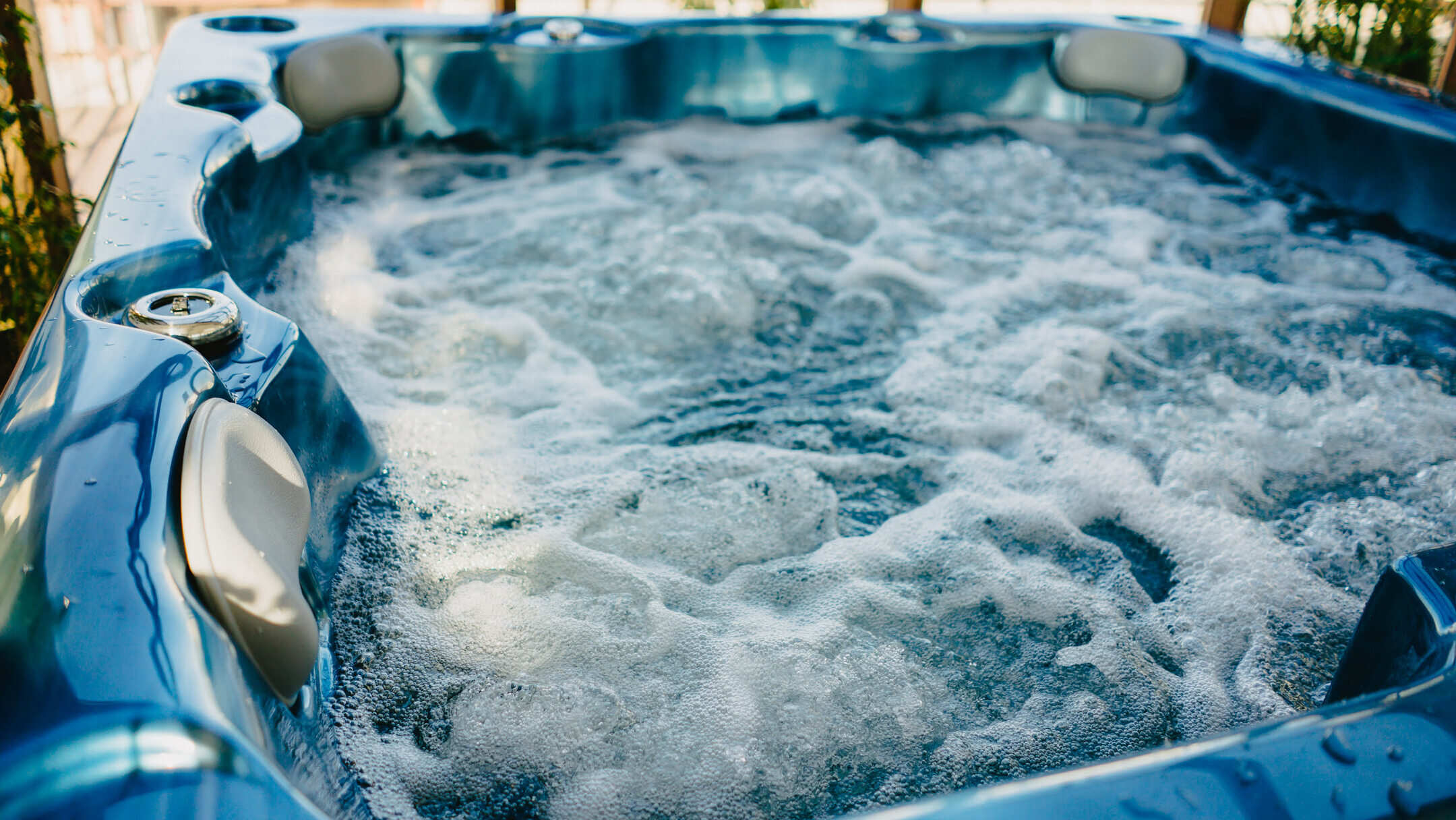
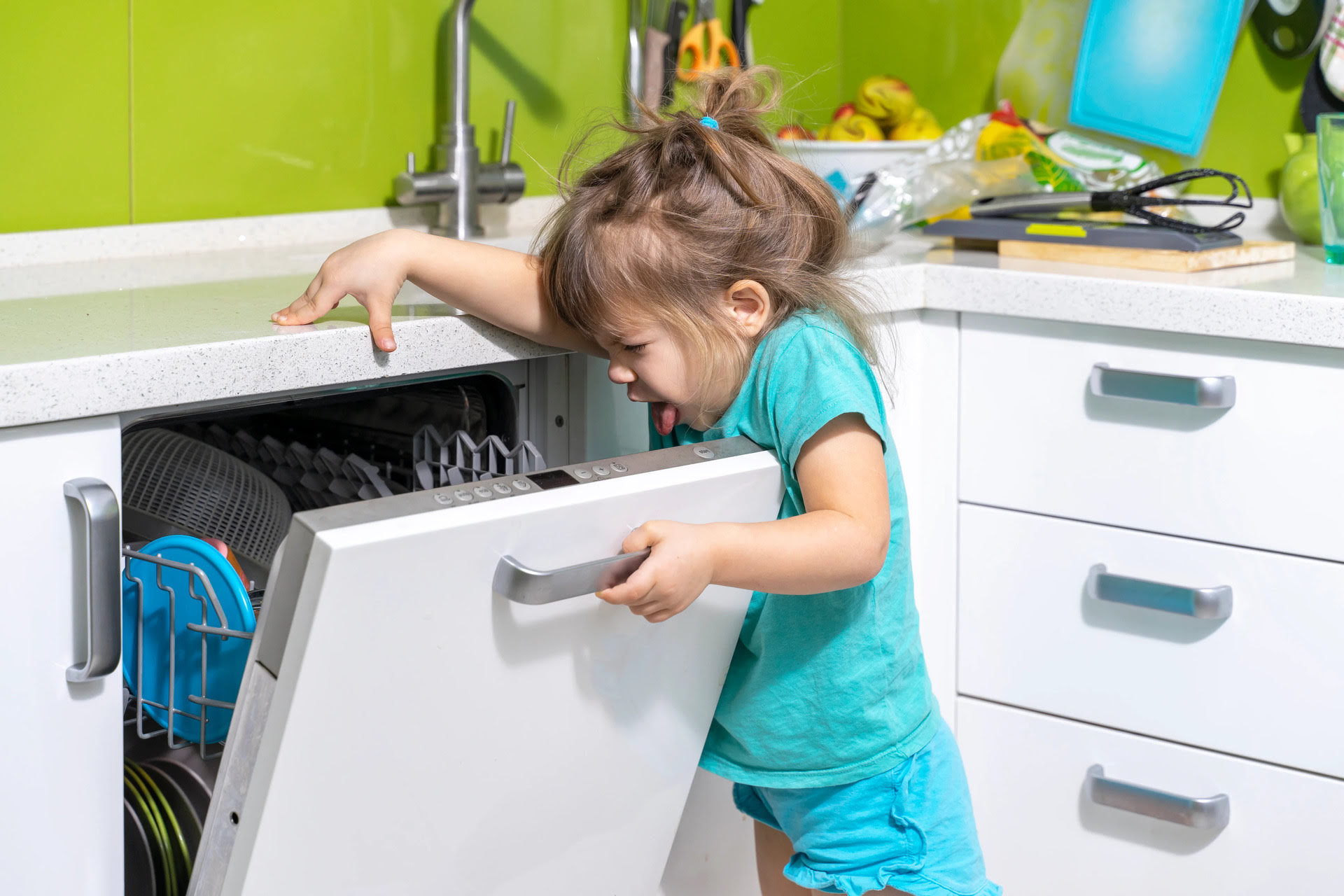
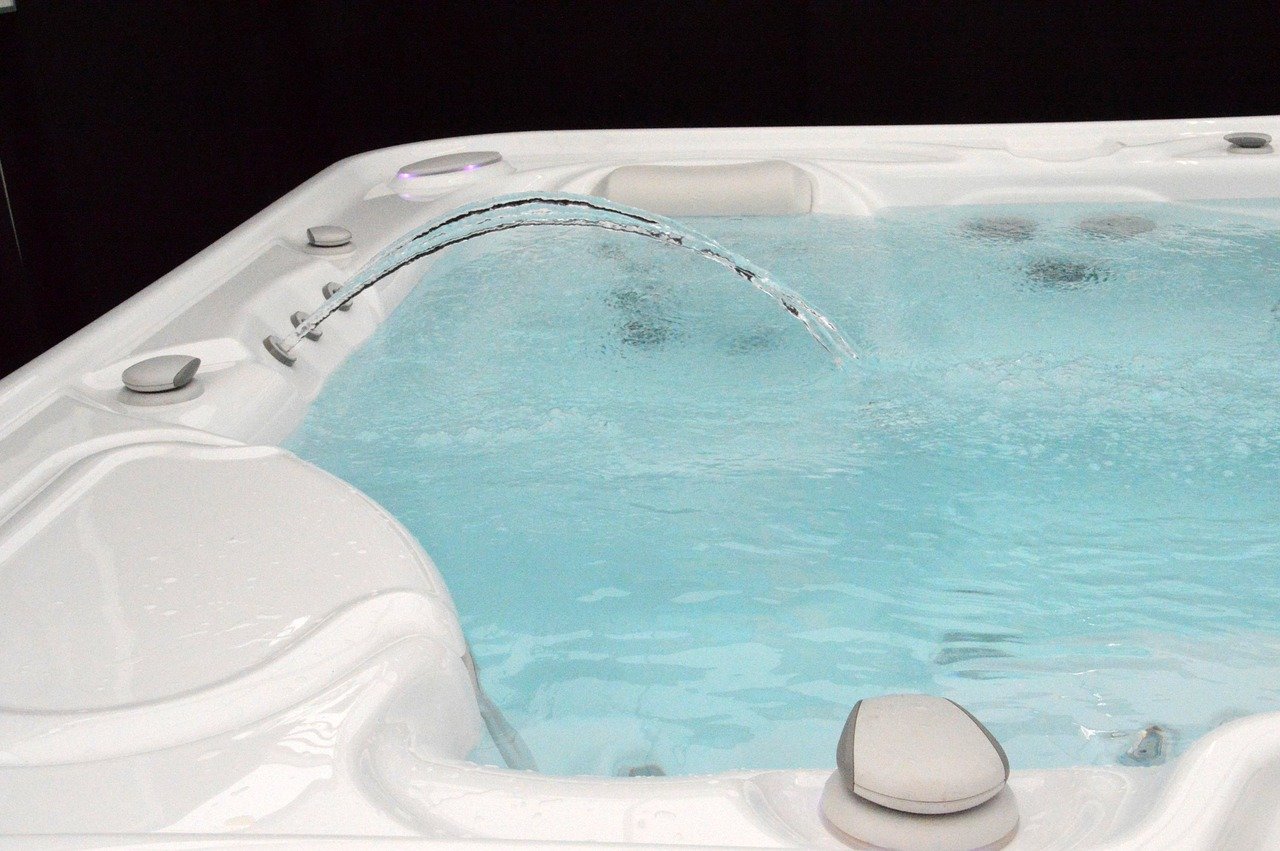
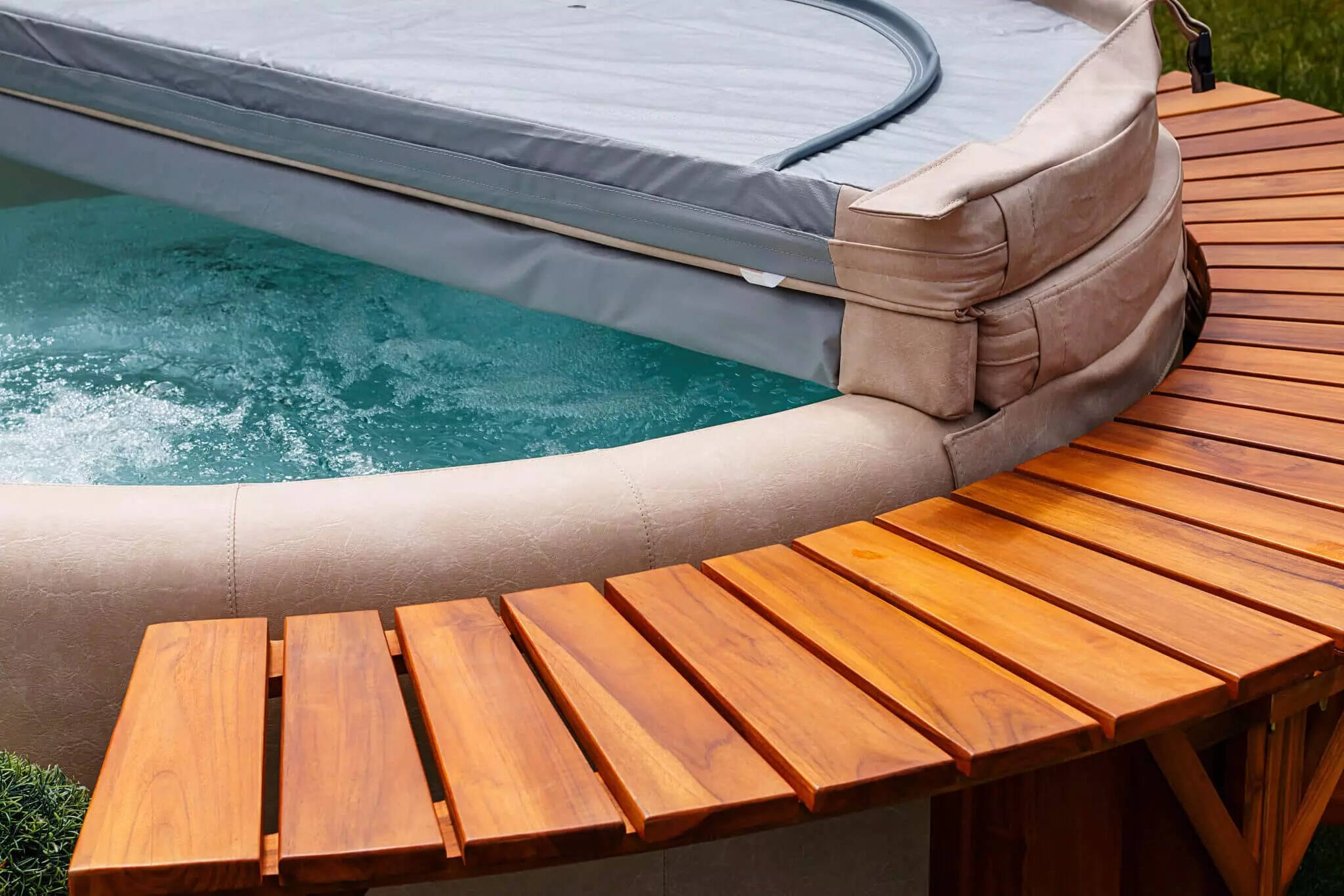
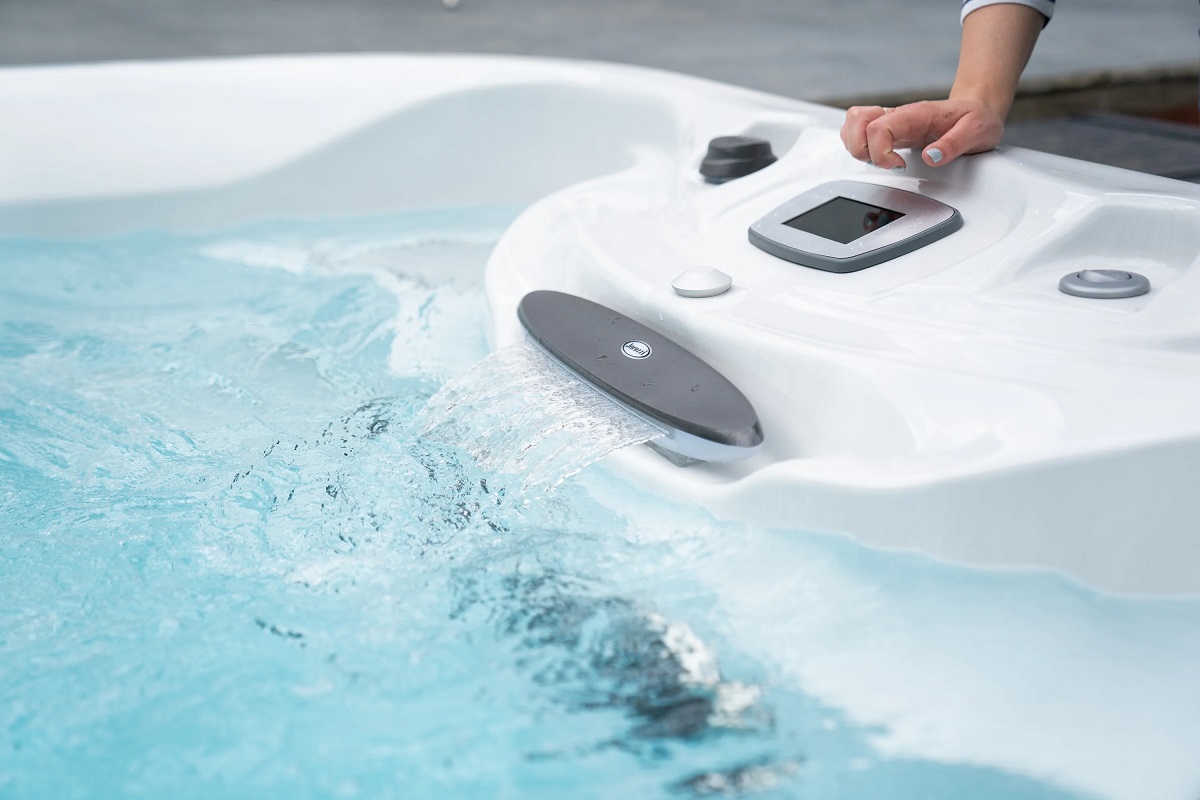
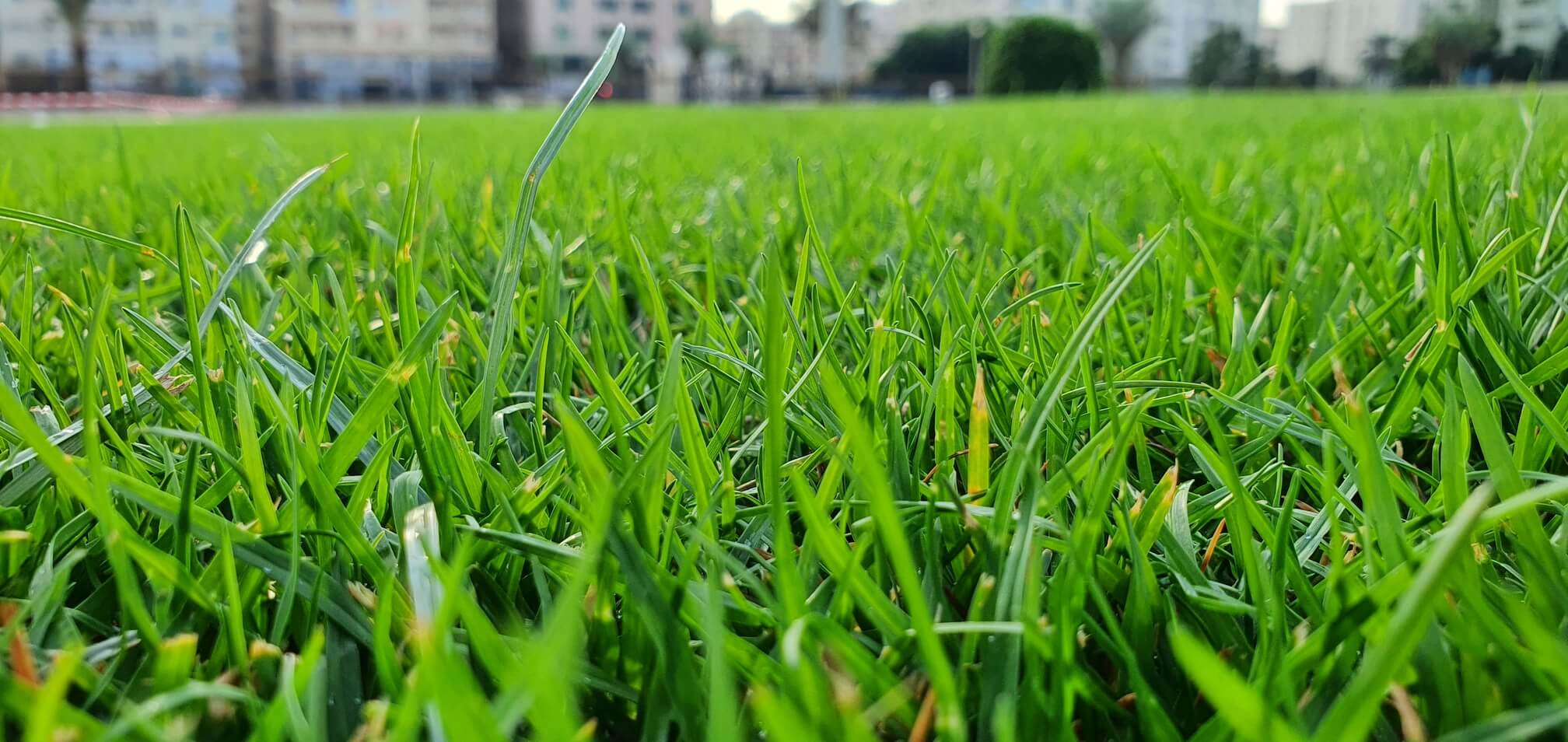

0 thoughts on “Why Does Hot Tub Water Smell”